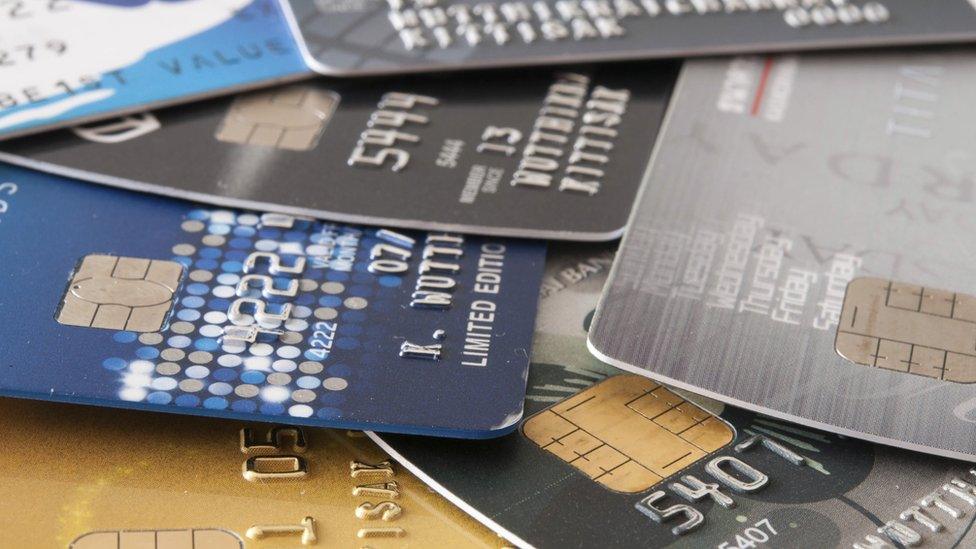Protect bank transfer scam victims, demands Which?
- Published

Victims are often tricked on the phone
People who are tricked into transferring money to a fraudster deserve better protection, according to consumer group Which?.
In a challenge to regulators, it said that anyone falling prey to a bank transfer scam had no legal right to get their money back from a bank.
It wants them to order banks to offer people the same protection that credit card fraud victims receive.
But the banks' anti-fraud group said that a blanket approach would not work.
Financial Fraud Action said it was correct for banks to pay compensation on a case-by-case basis, otherwise there was a chance that people would not be careful.
Transfer scams
The consumer group pointed out that banks have security checks on activities where they are liable to reimburse the victim, for example on credit card fraud.
It wants similar protection for victims of bank transfer scams.
"Unfortunately, as payment systems have developed, consumer protection hasn't kept up," Alex Neill, director of policy and campaigns at Which? told the BBC's Today programme.
"With bank transfers at the moment, consumers have no protection whatsoever, and we don't think that's right."
Using its legal powers, Which? is making a super-complaint to the Payment Systems Regulator and alerting the Financial Conduct Authority. The regulators have 90 days to investigate and respond.
It wants the regulators to:
Formally investigate the scale of bank transfer fraud and how much it is costing consumers
Take action and propose new measures and greater liability for banks to ensure consumers are better protected when they have been tricked into making a bank transfer.
Alex Neill said: "Most of us don't realise is that if you're conned into paying out money to a fraudster you stand to lose all of your money, unlike when you use your credit or debit card.
"We believe that banks must do more to tackle bank transfer fraud and safeguard their customers from scams."
She told Today: "Where is the risk best placed? Is it with the consumer as it is at the moment, or should it be with the banks?
"We think it should be with the banks as they have the systems in place to actually check these sorts of things."

Your protection

If you are tricked into transferring money into a fraudster's account, what protection do you have?
None. Victims conned into transferring money by bank transfer to a scammer currently have no legal right to get their money back from their bank, unlike with many other payment methods.
If you did not know that, you're not alone.
Which? research found that six in 10 people had no idea they had no consumer protection from their bank if they were scammed into making a bank transfer.

'Money had gone'

Christopher Mills, from York, was tricked into sending a £10,000 deposit for his new home to a fraudster after receiving an email that appeared to be from his estate agent.
His bank refused to cover the loss.
"It is just like being burgled at home; something is missing and you can't get it back," he said.
"The scammer was so clever in that the first email had exactly the same details that came from the estate agent."
In another case highlighted by Which?, fraudsters claiming to be from a UK bank convinced a customer that their account had been compromised and to transfer £17,500 savings to another account, set up in their name.
Within minutes the customer realised they had been tricked and contacted their bank, only to be told the money had gone and the customer should contact the receiving bank.
The bank investigated and said the fraudsters had almost cleared the account. It only offered to refund the 10p the fraudsters had left behind.
Super-complaint
A super-complaint allows certain bodies to complain to regulators about harmful features of a market. Which? is a designated consumer body under the Financial Services (Banking Reform) Act 2013.
It is the first super-complaint that the Payment Systems Regulator (PSR), which was set up last year, has received.
It has 90 days to examine the evidence Which? has supplied and gather its own to help decide what action, if any, to take.
Katy Worobec, Director of Financial Fraud Action UK, a crime prevention group funded by banks and card providers, said it was willing to work with Which? and the regulators but was "disappointed" that the action had been taken by the consumer group.
"Banks are legally obligated to fulfil a customer's request to transfer money even if they have warned the customer they are at risk of a potential scam. All banks will always work to recover stolen money, and last year recovered 40 per cent of funds taken through remote banking," she said.
"We are disappointed that Which? did not first seek to find positive solutions to ensure the legal protections for customers work before taking the super-complaint route.
"Customers rightly expect banks to carry out transactions they have authorised, and banks will provide compensation on a case-by-case basis. However, a blanket approach is equivalent to asking an insurance policy to pay out for theft when the front door was left wide open."
The PSR has invited anybody with information they believe could be helpful to contact the PSR at PSRSuper-Complaints@psr.org.uk
- Published20 September 2016

- Published21 July 2016

- Published25 May 2016
